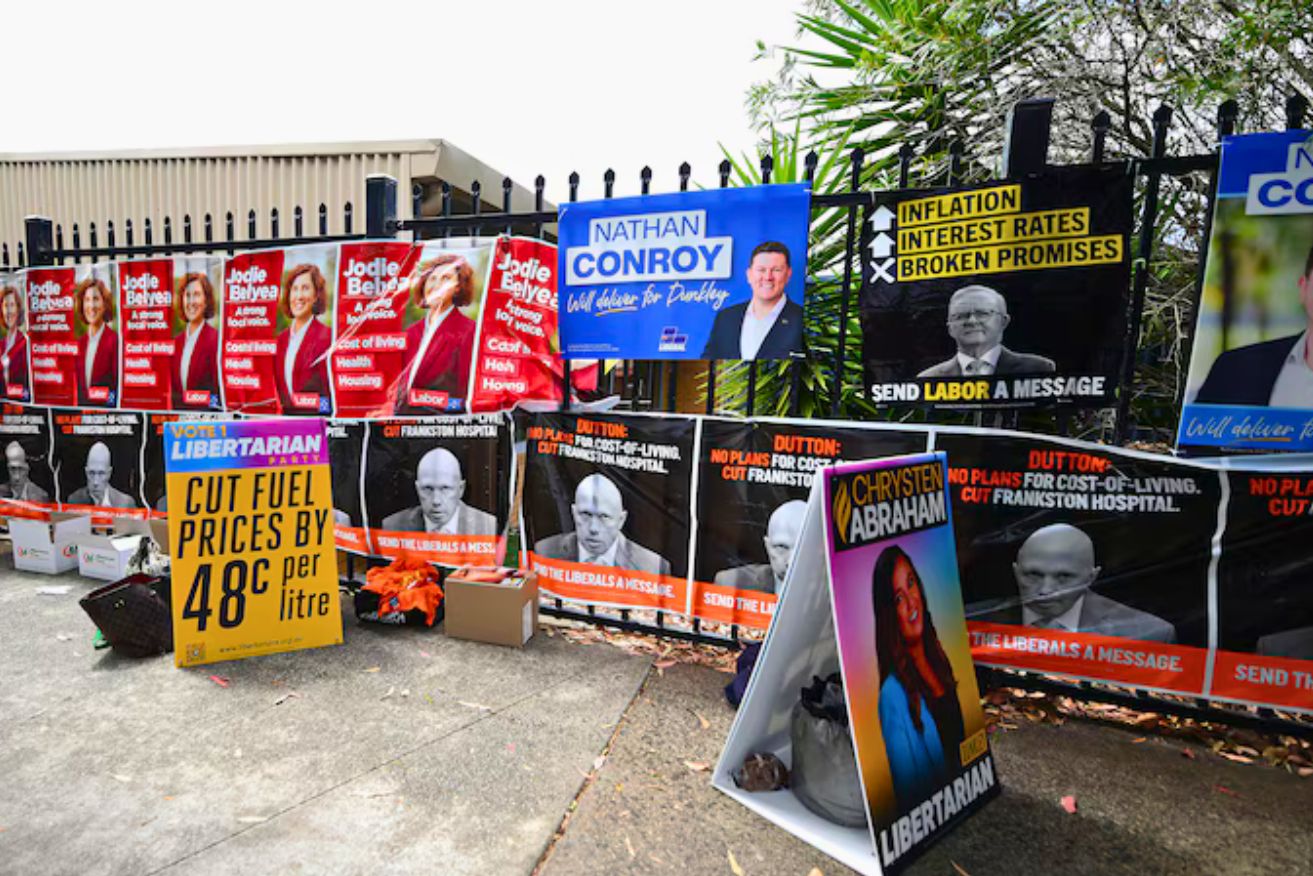What the Coalition missed in the fallout from the Dunkley byelection


The Liberals seem to have done an excellent job convincing themselves that last Saturday’s result in Dunkley was a win. Photo: AAP
Imagine if a strong female teal candidate had spent $400,000 on the Dunkley byelection instead of the angry Advance Australia lobby group.
The Liberals seem to have done an excellent job convincing themselves that last Saturday’s result is an endorsement of Peter Dutton’s strategy.
But in reality, even in a cost-of-living crisis with no teal contesting the seat, their primary vote managed only to pick up the votes that One Nation and Palmer’s UAP abandoned by not running candidates.
On byelection night, those spinning hardest for Dutton talked up the Liberals’ performance in the more affluent southern end of Dunkley. Hilariously, the Opposition Leader’s entire strategy since he opposed the Indigenous Voice and supported nuclear power has been to chase lower-income, outer-suburban voters.
Put simply, last Saturday, the Liberals picked up voters Dutton isn’t chasing and failed to win over those he is. Whoops.
Former Liberal MPs Tim Wilson and Jason Falinski were quick to make the case for why the party needs to change strategy, and maybe leader, if it is to win back the kind of wealthy inner-city seats that duo so spectacularly lost. Their 769-word opinion piece made a clear case to prioritise getting them back into Parliament, but said nothing about the mismatch between the priorities of teal voters and Liberal policy, failing to mention climate change, accountability and, not surprisingly, the clear desire of independent voters for more women in Parliament.
While the motives were clearly self-serving, their analysis did highlight the problems for Dutton and the Coalition’s “broad church”. In describing the swing to the Liberals in “teal-ish” Mount Eliza, they pointed out that: “At the last [Victorian] state election, it voted 56 per cent for the teal candidate after preferences were distributed. It also voted 56 per cent ‘yes’ in the Voice referendum.”
Again, imagine if a strong teal had run.
The Coalition is being torn apart by the competing worldview of the conservative wings of the Liberal and National parties and what remains of the inner-city moderates, who have no time for Barnaby Joyce lying drunk on the footpath, or Sussan Ley linking violence against women to immigrants.
Then there are policy priorities. While Matt Canavan loves to talk up the need for more gas and coal mines and talk down the benefits of renewable energy, outer-suburban voters and remote communities are bearing the brunt of record temperatures and, if they are lucky enough to have one, record prices for running their air-conditioners.
While moderate Liberals like former NSW treasurer Matt Kean work valiantly to convince voters that not all Liberals are climate sceptics, the political reality is that until Dutton slaps down the crazy climate talk from his conservative power base, teals will just keep eating the Liberals’ lunch in inner-city seats.
Shifting demographics, ‘forgotten’ suburbs
Demography makes things even harder for the Coalition. Australia’s rapidly growing population, combined with the fact that about 85 per cent of new arrivals live in our capital cities, means that the rural electorates crucial to John Howard’s success are steadily declining.
As our city populations grow, so too does the number of inner-city electorates. Once safe Coalition seats in the bush are steadily being merged with each other or with electorates based around regional cities or outer-metropolitan suburbs. According to the AEC, since 2001, the number of rural electorates has fallen by seven, from 45 to 38.
The “forgotten” suburbs that Dutton has talked so much about have never been fertile ground for the Coalition. Back in 2001, when Howard won the “Tampa election”, he managed to win only 21 of the 46 seats the AEC classified as outer-metropolitan – and by 2022 that had fallen to 15 of 43. But that fall was nothing compared to inner-metropolitan seats, where the Coalition fell from 17 to four over the same period.
Dutton’s failure to dent the Labor primary vote in a byelection in the middle of a cost-of-living crisis won’t cost him the job of Opposition Leader, but it does highlight how unlikely it is that he will become prime minister. To keep his current job, he needs to keep placating the overwhelmingly conservative, male (71 per cent) MPs and senators, often from Queensland (29 per cent), who make up his party room, vote on policy and decide who their leader will be.
While Canavan and Joyce might be happy with Dutton’s policies and positioning, it is clear from Dunkley that outer-suburban voters are not.
It is also clear that no matter how many op-eds former inner-city Liberal MPs like Falinski and Wilson write, there’s no chance that Dutton’s Coalition will even try to be a broad enough church to win back the former Liberal voters who voted yes for marriage equality, yes for the Voice and who want to subsidise climate action over coal and gas mines.
Richard Denniss is executive director of the Australia Institute.








